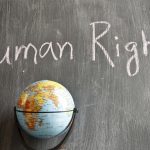 How can human rights groups call out government abuses without being seen as racist or fueling prejudice against diaspora communities? A study from the University of Notre Dame explores this tricky balance between advocating for rights and avoiding accusations of bias.
How can human rights groups call out government abuses without being seen as racist or fueling prejudice against diaspora communities? A study from the University of Notre Dame explores this tricky balance between advocating for rights and avoiding accusations of bias.
When groups like Amnesty International publicly criticize governments—often called “shaming”—their reputation for fairness is at stake. If their criticism seems racist, it can harm their credibility, making it harder to raise funds, attract volunteers, and rally the public against abuses.
The right approach
The researchers found that shaming paired with anti-racist messages helps reduce perceptions of racism. For instance, Amnesty’s 2022 report labeling Israel an “apartheid state” also condemned antisemitism and clarified that its critique was aimed at the government, not Jewish people. This approach lowered perceptions of racism by 5% compared to a report without such clarifications.
“Adding anti-racist cues is worth considering,” the authors suggest. While these messages may slightly weaken the public’s push against human rights abuses, they help protect the group’s reputation and reduce backlash.
The study involved surveys of nearly 7,000 Americans and interviews with staff from Amnesty, Oxfam, and Human Rights Watch. It found that shaming governments like Israel and China hurt their reputations without increasing antisemitism or anti-Asian prejudice.
Fighting back
The research also explored “countershaming,” where governments accuse human rights groups of racism to defend themselves. This tactic worked to some extent. For example, when China used racial countershaming, its support among foreign audiences rose by nearly 3%, offsetting much of the damage caused by the original criticism.
To stay effective, human rights organizations may need to go further than messaging tweaks. The researchers recommend hiring more diverse staff, strengthening accountability, and fostering inclusive cultures.
Ultimately, these groups must aim for real anti-racism, not just surface-level reputation management. As the researchers put it: “The goal isn’t just avoiding the appearance of racism but becoming truly anti-racist.”
In a polarized world, human rights groups must tread carefully to maintain their credibility while exposing injustices.